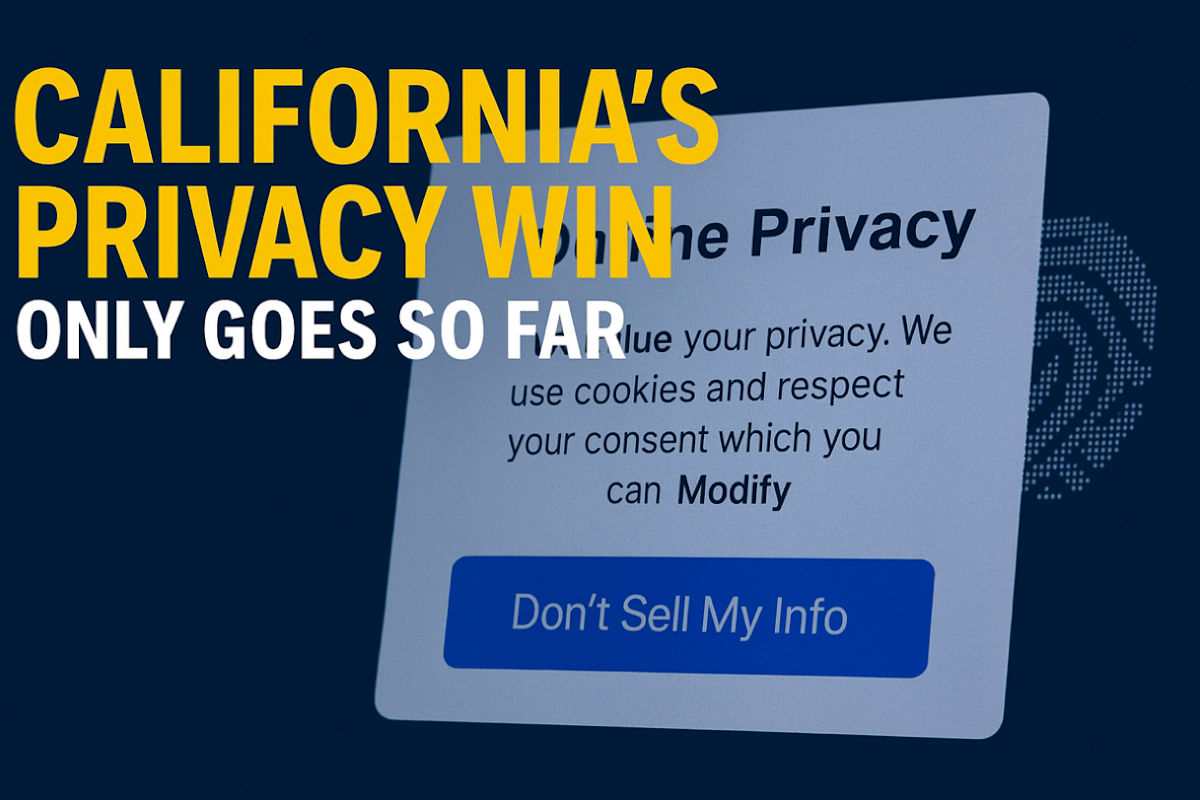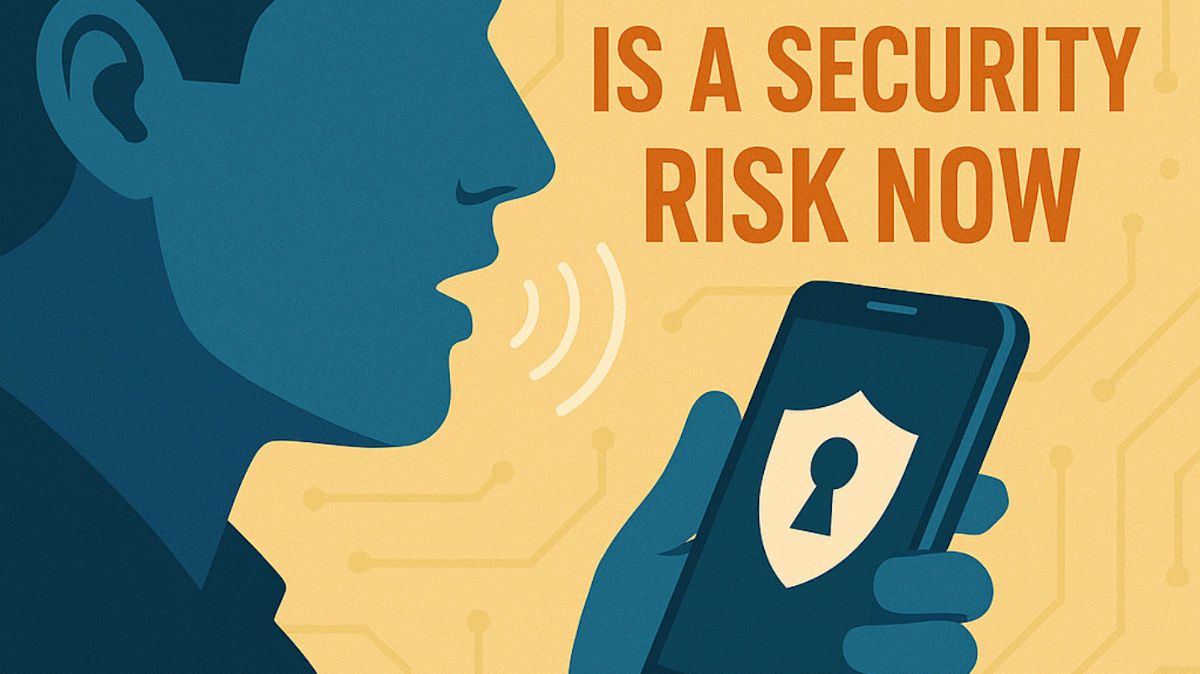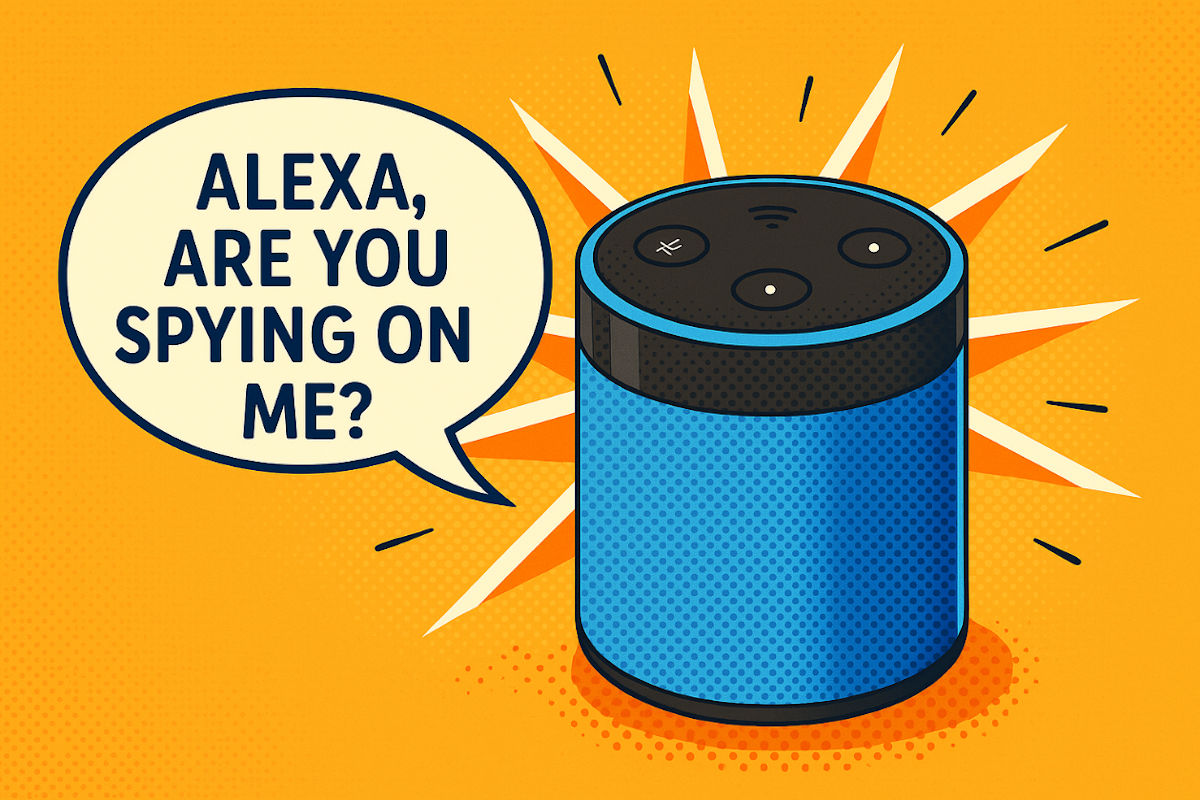In today’s AI-powered podcast, find out which everyday electronics are draining your power bill. Spooky! Also, how easy (and fast) it is for scammers to clone your voice. Don’t miss these simple ways to protect your privacy, save money and stay tech ahead!
California’s new opt‑out a win (if you live there)

Kim K. in Calabasas, CA, asked if California’s new browser privacy law means she no longer needs Incogni, a sponsor of my national radio show. Great question. First, yes, I did check to see if that “K” stood for Kardashian. No response … yet. 😏
👨🏻⚖️ California’s new AB 566 law
It forces browsers to give you a new one-click “Do Not Track Me” signal. It’s basically a big red stop sign for websites that love scooping up your personal data. The law (AB 566) goes into effect in 2026, and sites will be legally required if you’re in California.
So what does it actually stop?
All those creepy behind-the-scenes trackers, from recording your clicks and time on a page to building a profile around what you shop for, what device you’re on and your location. And yep, it could also mean the end of those annoying cookie consent pop-ups.
Sounds like a win, right? It is, but only if you live in California.
Other states haven’t passed anything like it yet. There’s no national law forcing websites to honor this do-not-track signal outside of CA, either. Some sites might apply it broadly to avoid legal headaches, but I wouldn’t count on it.
So while this new browser feature is a great first move, it’s not a force field. You’re still fair game for data brokers, app trackers and companies selling your personal data.
🕵️ The bigger problem
Now, this law only applies to websites. It does nothing to stop the worst offenders, data brokers.
This shady industry is already worth $278 billion and is projected to soar past $500 billion by 2030. That’s huge.
They’re scraping your name, address, phone number, salary estimate, political leanings, medical issues, interests and even your family members’ names, all from apps, public records, loyalty programs, credit pulls and social media. Then they bundle it up and sell it.
Protecting yourself from voice scams

Voice cloning has left the lab. Soon enough, you might hear your voice and think, Wait, is that me or an AI?
AI isn’t just being used to revive dead rappers or prank your boss with Drake impressions. Scammers are generating voices to fake kidnappings, drain bank accounts and impersonate your kid in crisis.
Real-life energy vampires
Apple ups privacy: Websites can still track you by stitching together your IP, device info and time zone into a “fingerprint.” No opt-out. iOS 26 (out Sept. 16) will auto-block that in Safari. Add in spam call screening and link-tracking protection, and Apple’s getting a privacy facelift.
$725 million
That’s the total Facebook is shelling out for its privacy sins. Payouts depend on how long you were active between 2007 to 2022, so your hardcore FarmVille grinding may finally pay off. Don’t expect much, though. Basically, 15 years of oversharing buys you lunch, not a vacation.
🔒 Make Instagram private: If your account is public, anyone can see your posts, even without an Instagram account. To lock it down, tap your profile photo > Settings and activity > Who can see your content > Account privacy > toggle Private account. Now only approved followers can see your posts and follower list.
Top scams spreading right now

Every crime has a setup. In five recent cases, scammers turned online breadcrumbs into jackpots. I want you to know how to make sure you’re not their next payday.
Scammers stalk grief like predators. A Pennsylvania widow was conned out of her entire life savings, over $200,000 plus her home, by a romance scammer she met on Facebook. A 63-year-old widower sold his condo and wired $80,000 to a “friend” who convinced him to invest in a sure thing.
Free cloud storage: What you really get and what to do when it runs out

You set your phone to back up photos, turn on file sync, and next thing you know, you get a message: “Storage full.” Wait, what the heck happened?
Let’s clear up your cloud storage confusion.
📱 Save data on Facebook: Watching videos eats up your mobile plan fast. You can cut usage by up to 40% by lowering video quality. Just tap the three-dot menu (top right) > Settings & privacy > Settings > Media > toggle on Data Saver. While you’re there, set Autoplay in Feed and Stories to Wi-Fi only.
Hidden cameras in your Airbnb?
A Georgia couple found hidden cameras in their Puerto Rico Airbnb, capturing private moments with their kids.Here are four smart steps to spot hidden cameras, protect your privacy, and stay safe while traveling.
📵 Manage blocked contacts on iPhone: In iOS 26, blocked numbers and emails are in a new area. Go to Settings > Privacy & Security > Blocked Contacts to see your full list. Tap any name to unblock, or hit Add Blocked Contact to manually type in a phone number or email address.
Take back your privacy: Your personal information is all over the internet on data broker and people-search sites. Incogni automatically removes your info from over 420 sites, and if you spot your info anywhere, just send them the link, and they’ll send a removal request fast. Get 60% off today!*
Guess who’s spying from your bookshelf

With more than 500 million Alexa-enabled devices sold worldwide, odds are you’ve got one sitting on your counter or desk, quietly glowing, always listening. Ever mutter something like, “I need new jeans,” and suddenly your phone’s serving up Levi’s ads? Creepy coincidence or hot mic in action?
Your Bluetooth is spying on you right now
Bluetooth is tracking you even when your GPS is off. Apps use it to map your movements and build profiles. Here’s how to stop them and protect your privacy.
Lock it down: ExpressVPN is my go-to for online privacy. With one click, everything you do is hidden from hackers, snoops, even your internet provider. Right now, you’ll get 4 months FREE!
The glasses that will change everything
Oakley and Meta just launched sunglasses that look normal but secretly record everything you see. The AI-powered Oakley Meta Vanguard could change privacy, sports, and even journalism forever. Here’s what you need to know.
✉️ Another platform, same spam: Just like LinkedIn, X lets anyone send you a message request that clutters your inbox. To stop it, go to Settings and privacy > Privacy and safety > Direct messages > Allow message requests from, and toggle No one. People you follow can still message you. While you’re there, you can also toggle off Show read receipts.
👨🏻💼 Stop LinkedIn spam: If you’re flooded with unwanted message requests, lock down your profile. Go to Settings & Privacy > Data privacy > Who can reach you > Messages and toggle off Message requests. Don’t want random invites either? Go back to Who can reach you > Invitations to connect and toggle Only people in your Imported Contacts.
📱 Apple ups privacy: Websites can still track you by stitching together your IP, device info and time zone into a “fingerprint.” No opt-out. iOS 26 (out tomorrow) will auto-block that in Safari. Add in spam call screening and link-tracking protection, and Apple’s getting a privacy facelift.
Check app permissions on Mac: New apps often ask for access to your files, microphone or location. Go to System Settings > Privacy & Security, then check sections like Location Services, Contacts, Photos and Camera. You can disable access on an app-by-app basis.